Search
Recent comments
- escalationing....
50 min 43 sec ago - not happy, john....
5 hours 10 min ago - corrupt....
10 hours 31 min ago - laughing....
12 hours 25 min ago - meanwhile....
13 hours 54 min ago - a long day....
15 hours 48 min ago - pressure....
16 hours 35 min ago - peer pressure....
1 day 7 hours ago - strike back....
1 day 8 hours ago - israel paid....
1 day 9 hours ago
Democracy Links
Member's Off-site Blogs
planet bugsy...
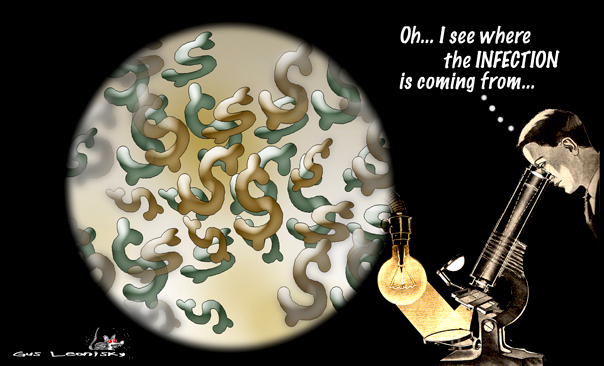 The US withdrawal from Syria, even if it was immediately corrected, indicates with certainty that Washington no longer intends to be the world’s policeman, the "necessary Empire". It destabilized without delay all the rules of international relations. We have entered a period of transition during which each major power is pursuing a new agenda. Here are the main ones.
The US withdrawal from Syria, even if it was immediately corrected, indicates with certainty that Washington no longer intends to be the world’s policeman, the "necessary Empire". It destabilized without delay all the rules of international relations. We have entered a period of transition during which each major power is pursuing a new agenda. Here are the main ones.
The United States of America
The collapse of the Soviet Union could have caused the collapse of the United States, since the two empires were leaning on each other. This was not the case. President George Bush Sr. ensured with Operation Desert Storm that Washington became the undisputed leader of all nations, then demobilized 1 million soldiers and proclaimed the quest for prosperity.
Transnational corporations then signed a pact with Deng Xiaoping to have their products manufactured by Chinese workers, who were paid twenty times less than their American counterparts. This led to a considerable development of international freight transport, followed by the gradual disappearance of jobs and the middle classes in the United States. Industrial capitalism was replaced by financial capitalism.
At the end of the 1990s, Igor Panarin, a professor at the Russian Diplomatic Academy, analyzed the economic and psychological collapse of American society. He hypothesized that the country would break up along the lines of what had happened to the Soviet Union with the emergence of new states. To repel the collapse, Bill Clinton freed his country from international law with NATO’s aggression against Yugoslavia. As this effort proved insufficient, US personalities imagined adapting their country to financial capitalism and organizing, by force, international trade so that the coming period would be a "new American century". With George Bush Jr., the United States abandoned its position as a leading nation and tried to transform itself into an absolute unipolar power. They launched the "endless war" or "war on terrorism" to destroy one by one all state structures in the "broader Middle East". Barack Obama continued this quest by associating a host of allies with it.
This policy paid off, but only a very few benefited, the "super-rich". The Americans responded by electing Donald Trump as president of the federal state. He broke with his predecessors and, like Mikhail Gorbachev in the USSR, tried to save the United States by relieving it of its most costly commitments. He boosted the economy by encouraging national industries against those that had relocated their jobs. He subsidized the extraction of shale oil and managed to take control of the world hydrocarbon market despite the cartel formed by OPEC and Russia. Aware that his army is first and foremost a huge bureaucracy, wasting a huge budget on insignificant results, he stopped supporting Daesh and the PKK, negotiating with Russia a way to end the "endless war" with as little loss as possible.
In the coming period, the United States will be driven primarily by the need to save on all its actions abroad, until it abandons them if necessary. The end of imperialism is not a choice, but an existential question, a survival reflex.
The People’s Republic of China
After Zhao Ziyang’s attempted coup d’état and the Tiananmen uprising, Deng Xioping began his "journey south". He announced that China would continue its economic liberalization by entering into contracts with US multinationals.
Jiang Zemin continued on this path. The coast became a "workshop of the world", causing gigantic economic development. Gradually he cleaned the Communist Party of its caciques and ensured that well-paid jobs extended inland. Hu Jintao, concerned about a "harmonious society", repeals the taxes paid by peasants in the interior regions still not affected by economic development. But he failed to control the regional authorities and fell into corruption.
Xi Jinping proposed to open up new markets by building a huge project of international trade routes, the "Silk Roads". However, this project came too late because, unlike in antiquity, China no longer offers original products, but what transnational corporations sell at a lower price. This project was welcomed as a blessing by poor countries, but feared by the rich who are preparing to sabotage it. Xi Jinping is taking up positions in all the islets his country had abandoned in the China Sea, during the collapse of the Qing Empire and the occupation by the eight foreign armies. Aware of the destructive power of the West, he formed an alliance with Russia and refrained from any international political initiative.
In the coming period, China should affirm its positions in international fora, bearing in mind what the colonial empires imposed on it in the 19th century. But it should refrain from military intervention and remain a strictly economic power.
The Russian Federation
When the USSR collapsed, the Russians believed they would save themselves by adhering to the Western model. In fact, Boris Yeltsin’s team, trained by the CIA, organized the looting of collective property by a few individuals. In two years, about a hundred of them, 97% of them from the Jewish minority, took everything available and became billionaires. These new oligarchs fought each other mercilessly with machine guns and attacks in the middle of Moscow, while President Yeltsin bombed parliament. Without a real government, Russia was nothing more than a wreck. Warlords and jihadists armed by the CIA organized the secession of Chechnya. The standard of living and life expectancy collapsed.
In 1999, FSB Director Vladimir Putin rescued President Yeltsin from an investigation for corruption. In exchange, he was appointed President of the Council of Ministers; a position he used to force the President to resign and get himself elected. He put in place a vast policy of state restoration: he put an end to the civil war in Chechnya and methodically killed all the oligarchs who refused to comply with the state. The return of order was also the end of the Russian Western fantasy. Living standards and life expectancy improved.
Having restored the rule of law, Vladimir Putin did not stand for re-election after two consecutive terms. He supported a pale law professor, worshipped by the United States, Dmitry Medvedev, to succeed him. But not intending to leave power in weak hands, he was appointed Prime Minister until his re-election as President in 2012. Wrongly believing that Russia would collapse again, Georgia attacked South Ossetia, but instantly found Prime Minister Putin in its path. He then saw the pitiful state of the Red Army, but managed to overcome it thanks to the effect of surprise. Re-elected President, he focused on defence reform. He retired hundreds of thousands of officers, often disillusioned and sometimes drunk, and placed the Tuvan general (Turkish-speaking Siberian) Sergei Choïgou in the Ministry of Defence.
Adopting a traditional Russian management style, Vladimir Putin separated the civilian budget from part of the military budget. The first is voted by the Duma, the second is secret. He restored military research, while the United States imagined that it would no longer have to invest in this area. He tested a number of new weapons before deploying the new Red Army to help Syria. He experimented with his new weapons in combat situations and decided which ones would be produced and which ones would be abandoned. He organized a quarterly rotation of his troops so that all of them, one after the other, would become stronger. The Russian Federation, which in 1991 was nothing more than nothing, became the world’s leading military power in eighteen years.
At the same time, he used the Nazi coup d’état in Ukraine to reclaim Crimea, a Russian territory administratively linked to Ukraine by Nikita Khrushchev. He then faced a campaign of European Union agricultural sanctions that he used to create self-sufficient domestic production.
He forged an alliance with China and forced it to modify its Silk Roads project by integrating the communication needs of Russian territory to form an "Extended Eurasia Partnership".
In the coming years, Russia will try to reorganise international relations on two bases: to separate political and religious powers; to restore international law on the basis of the principles formulated by Tsar Nicholas II.
Western Europeans
The United Kingdom of Great Britain and Northern Ireland
When the USSR fell, the United Kingdom subscribed with reservations to the Maastricht Treaty. Conservative Prime Minister John Major intended to take advantage of the supranational state under construction while keeping his currency out of the way. So he rejoiced when George Soros attacked the Pound and forced it out of the EMS ("monetary snake"). His successor, Labourist Tony Blair, restored full independence to the Bank of England and considered leaving the EU to join NAFTA. He transformed the defence of his country’s interests by substituting references to human rights for respect for international law. He promoted the US policies of Bill Clinton, then George Bush Jr., encouraging and justifying the enlargement of the European Union, the "humanitarian war" against Kosovo, and the overthrow of Iraqi President Saddam Hussein. In 2006, he developed the "Arab Spring" plan and submitted it to the United States.
Gordon Brown hesitated to pursue this policy and tried to regain some room to manoeuvre, but his energy was caught up in the 2008 financial crisis, which he managed to get through. David Cameron implemented, with Barack Obama, the Blair-Bush plan for the "Arab Spring", including the war against Libya, but eventually only partially succeeded in placing the Muslim Brotherhood in power in the broader Middle East. In the end, he resigned after the Brexit voters voted, when the project to join NAFTA was no longer on the agenda.
Theresa May proposed to apply Brexit with regard to the exit of the supranational state from the Maastricht Treaty, but not with regard to the exit from the common market prior to Maastricht. She failed and was replaced by Winston Churchill’s biographer, Boris Johnson. He decided to leave the European Union completely and to reactivate the kingdom’s traditional foreign policy: the fight against any competing state on the European continent.
If Boris Johnson remains in power, the United Kingdom should in the coming years try to pit the European Union and the Russian Federation against each other.
The French Republic
François Mitterrand did not understand the dislocation of the USSR, going so far as to support the generals’ putsch against his Russian counterpart, Mikhail Gorbachev. In any case, he saw an opportunity to build a European supranational state, big enough to compete with the USA and China in the continuity of the Napoleonic attempt. Together with Chancellor Helmut Kohl, he promoted German unification and the Maastricht Treaty. Worried about this United States of Europe project, President Bush Sr, convinced of the "Wolfowitz doctrine" of preventing the emergence of a new challenger to the US leadership, forced him to accept NATO’s protection of the EU and its extension to former members of the Warsaw Pact. François Mitterrand used cohabitation and the Gaullist Minister of the Interior, Charles Pasqua, to fight the Muslim Brotherhood that the CIA had made him accept in France and that MI6 used to oust France from Algeria.
Jacques Chirac developed French deterrence by completing air nuclear tests in the Pacific before moving on to simulations and signing the Comprehensive Nuclear-Test-Ban Treaty (CTBT). At the same time, he adapted the armies to NATO’s needs by ending compulsory military service and integrating the Alliance’s Military Committee (planning). He supported NATO’s initiative against Yugoslavia (Kosovo war), but - after reading and studying 9/11 The Big Lie [1]- took the lead in global opposition to aggression against Iraq. This episode allowed him to bond with Chancellor Schröder and to advance the European supranational state, which he always conceived as a tool of independence around the Franco-German couple. Disrupted by the assassination of his business partner, Rafik Hariri, he turned against Syria, which the United States referred to as the mastermind behind the murder.
Advocating a radically different policy, Nicolas Sarkozy placed the French army under US command via NATO’s Integrated Command. He tried to enlarge the French area of influence by organizing the Union for the Mediterranean, but this project did not work. He proved his worth by overthrowing Laurent Bagbo in Côte d’Ivoire and, although he was overtaken by Arab springs in Tunisia and Egypt, he led NATO’s operation against Libya and Syria. However, for the sake of realism, he noted the Syrian resistance and withdrew from the theatre of operation. He continued the construction of the United States of Europe by having the Lisbon Treaty adopted by Parliament, even though the voters had rejected the same text under the name of the "European Constitution". In reality, the modification of institutions, which are supposed to become more effective with 27 Member States, is profoundly transforming the supra-national State, which can now impose its will on Member States.
Coming to power without being prepared for it, François Hollande followed in Nicolas Sarkozy’s footsteps in a somewhat rigid way, forcing him to adopt the latter¹s ideology. He signed all the treaties that his predecessor had negotiated - including the European Budget Pact allowing Greece to be sanctioned - adding to them each time, as if to apologise for his reversal, a declaration setting out his own point of view, but without binding force. Thus he authorized the establishment of NATO military bases on French soil, putting a definitive end to the Gaullist doctrine of national independence. Or he continued the policy of aggression against Syria, making a verbal overbid before doing nothing on the White House’s orders. He assigned the French Army a mission in the Sahel, as a ground-based substitute for AfriCom. Finally, he justified the CO2 emissions trading exchange by the Paris Climate Agreement.
Elected thanks to the American investment fund KKR, Emmanuel Macron is first and foremost an advocate of globalization according to Bill Clinton, George Bush Jr. and Barack Obama. However, he quickly adopted the vision of François Mitterrand and Jacques Chirac according to which only a European supranational state would allow France to continue to play a significant international role, but in its Sarkozy-Holland version: the Union allows constraint. These two lines sometimes lead to contradictions, particularly with regard to Russia. However, they are united in a condemnation of the nationalism of the Member States of the European Union, a short Brexit, or a desire to restore trade with Iran.
In the coming years, France should measure its decisions in terms of their impact on the building of the European Union. It will seek as a priority to ally itself with any power working in this direction.
Federal Republic of Germany
Chancellor Helmut Kohl saw the break-up of the Soviet Empire as an opportunity to bring the two Germanies together. He obtained the green light from France in exchange for German support for the European Union’s single currency project, the euro. He also obtained the agreement of the United States, which saw it as a way to divert the East German army into NATO despite the promise made to Russia not to allow the German Democratic Republic to join.
Once German reunification was achieved, Chancellor Gerhard Schröder raised the question of his country’s international role, still under attack from its defeat in the Second World War. Although Germany is no longer militarily occupied by the four major powers, it nevertheless hosts huge US garrisons and the headquarters of EuCom and soon AfriCom. Gerhard Schöder used the "humanitarian" war against Kosovo to legally deploy German troops out of the country for the first time since 1945. But he refused to recognize this territory conquered by NATO as a state. Similarly, he is very strongly committed alongside President Chirac against the United States-British war in Iraq, stressing that there is no evidence that President Saddam Hussein was involved in the attacks of September 11th. He tried to influence European integration in a peaceful way. He therefore strengthened energy ties with Russia and proposed a federal Europe (including Russia in the long term) based on the German model, but he met with opposition from France, which is very attached to the project of a supra-national state.
Chancellor Angela Merkel returned to the politics of her mentor Helmut Kohl, who handed her over in one night from her responsibilities at the Communist Youth of Democratic Germany to the Federal Government of Germany. Closely monitored by the CIA, which is not sure how to define her, she strengthened Germany’s ties with Israel and Brazil. In 2013, on Hillary Clinton’s proposal, she asked Volker Pethes to study the possibility of developing the German army to play a central role in CentCom if the United States moved its troops to the Far East. She then commissioned studies on how German officers could supervise the armies of Central and Eastern Europe and asked Volker Perthes to write a plan for Syria’s surrender. Very attached to Atlanticist and European structures, she distanced herself from Russia and supported the Nazi coup d’état in Ukraine. In order to be effective, she required that the European Union impose its will on small Member States (Lisbon Treaty). She was very tough during the Greek financial crisis and patiently placed her pawns in the European bureaucracy until Ursula von der Leyen was elected President of the European Commission. When the United States withdrew from northern Syria, she immediately responded by proposing to NATO to send the German army to replace it in accordance with the 2013 plan.
In the coming years, Germany should focus on the possibilities of military intervention in the framework of NATO, particularly in the Middle East, and be wary of the project of a centralised European super-national state.
FeasibilityIt is very strange to hear today about "multilateralism" and "isolationism" or "universalism" and "nationalism". These questions do not arise because everyone has known since the Hague Conference (1899) that technological progress has made all nations in solidarity. This logorrhoea does not hide our inability to admit the new power relations and to envisage a world order that is as unjust as possible.
Only the three Great Powers can hope to have the means to implement their policies. They can only achieve their ends without war by following the Russian line based on international law. However, the danger of internal political instability in the United States raises more than ever the risk of a generalized confrontation.
When they left the Union, the British were forced to join the United States (which Donald Trump rejected) or to disappear politically. While Germany and France, which are losing ground, have no choice but to build the European Union. However, for the time being, they assess the time available very differently and consider it in two incompatible ways, which could lead them to disrupt the European Union themselves.
Thierry MeyssanTranslation
Roger Lagassé
Read more:
https://www.voltairenet.org/article208316.html
- By Gus Leonisky at 24 Nov 2019 - 8:48am
- Gus Leonisky's blog
- Login or register to post comments
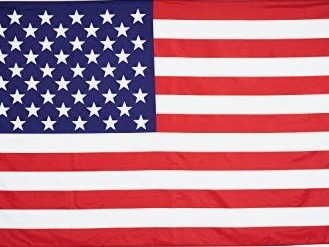
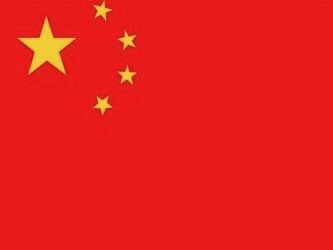
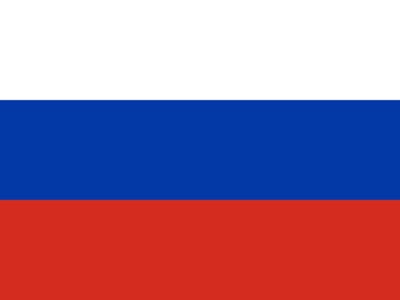
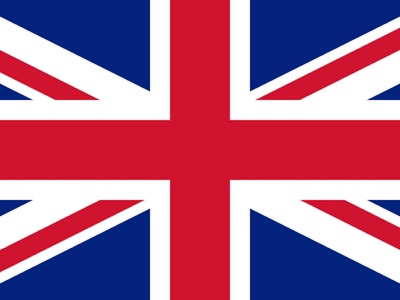
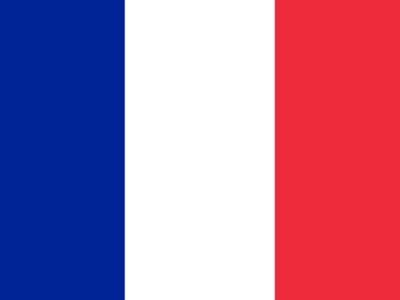
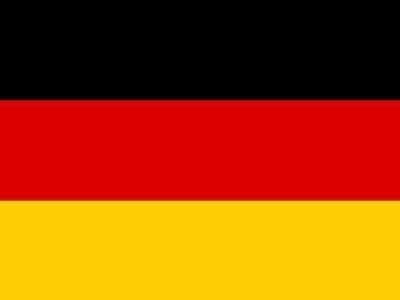
a decadent western satrapy...
Moscow might as well have drafted the script of Donald Trump’s leaked call to Volodymyr Zelensky on July 25th. In it, Ukraine’s president endorsed criticism of his European partners and seemed open to a deal by which his country would disclose information damaging to Joe Biden, a possible electoral rival to Mr Trump, in return for aid in its struggle against Russia’s military incursions. The transcript reinforced Moscow’s lie that Ukraine is a decadent Western satrapy.
Friends of Ukraine need not worry too much about the call. Plenty of European leaders, after all, humour Mr Trump on the phone. But Ukrainians and their allies ought to worry about something else. A partial thaw in eu-Russia relations, produced not by the ramblings of an inexperienced Ukrainian president but by long-term geopolitical shifts, is under way.
Read more:
https://www.economist.com/europe/2019/10/12/a-thaw-in-eu-russia-relation...
It's a bit more complicated than this... Read from top. Europe and Russia need to work together...
70 years of international humanitarian law...
The year now drawing to a close marked the 70th anniversary of the signing of the most important documents of international humanitarian law or international law of war, as it is also known, the four Geneva Conventions of 1949.
Universal values of ethical behaviourConsidering the numerous armed conflicts in our world, no one wanted to take this as an occasion for great celebration, but to reflect, however, on the importance of these conventions and the duty contained for all of us as human beings and as fellow human beings. Although being violated time an again until today, these conventions, together with the other agreements of international humanitarian law and the closely related activities of the International Committee of the Red Cross (ICRC) and the national Red Cross and Red Crescent Societies represent milestones in human history. In a world full of violence and armed conflicts, people again and again have been looking for ways and means to preserve a space for humanity even in times of war and to set limits to violence, to the state of lawlessness and to human suffering.
Currently, 196 states have signed these conventions, whereby, as the President of the International Committee of the Red Cross (ICRC), Peter Maurer, noted, they “are among the very few international treaties that have been universally ratified, not least because they reflect – more than just law – universal values of ethical behaviour”.1 International humanitarian law demands that the defenceless should not simply be left to their fate; it demands limitation of the powerful, it demands end of violence, where with respect to the defenceless the right of self-defence is no longer justified, it demands humane treatment of all those who do not or no longer participate in hostilities. It is the law of the weak in face of unleashed organised violence. International humanitarian law has been violated time and again, and often in the grossest way. Far more often, however, it has been respected, albeit in a less spectacular way, and it has saved the lives of millions of people, prevented much unnecessary suffering and at least somewhat alleviated the always dramatic consequences of armed conflicts.
The International Humanitarian Lawev. The International Humanitarian Law (IHL) seeks to limit the effects of armed conflicts on people and objects. It initially applied on armed conflicts between two or more states. Supplemented by the Additional Protocols II of 1977 it also applies on non-international conflicts.
Switzerland as Depositary StateAll persons who are not participating in hostilities (civilians) and all those who have ceased to take part, such as wounded, prisoners of war, internees, ship-wrecked as well as medical and religious military personnel are entitled to protection.
They must not be attacked and have to be treated humanely and without any adverse distinction in all circumstances. The wounded and sick must be rescued and cared for, prisoners of war and people in detention must be treated humanely. Murder, torture, hostage-taking, impairment of personal dignity and convictions without the verdict of a court of law are prohibited.
As the Depositary State, Switzerland is responsible for the storage of the original documents of the Treaty as well as the declaractions of ratification and accession and other declarations of the contracting parties. They also must notify the other parties of such declarations and ensure that all legal acts connected with the Treaty are carried out in accordance with the regulations.
International humanitarian law and Red Cross alleviateIn the fulfilment of all these assignments the Depositary is under obligation to neutrality.
The development of international humanitarian law is closely linked to the Red Cross: already the first Geneva Convention of 1864 was the result of the work of Henry Dunant and the other members of the International Committee for Relief for the Wounded Soldiers, as it was called at that time. It aimed at protecting the volunteers who cared for the victims of war and violence in relief societies by legally binding the states. With the first convention, red cross on white ground was declared an inviolable sign of protection, respect for which is guaranteed by the unconditional observance of the seven Red Cross principles (see box), especially its neutrality and impartiality. When the horrors of the Second World War urged to extend the humanitarian conventions and and after all their extension to include the protection of civilians, it was again the International Committee that initiated the drafting of the four conventions, which finally were adopted by the representatives of the states in 1949. The fact that the diplomatic conference convened by the Swiss Federal Council in Geneva on 21 April 1949 to discuss the draft treaties was successfully concluded as early as 12 August, i.e. less than four months later, bears witness to the readiness and willingness to contribute to the legal protection of the civilian population in particular, but also of prisoners of war and internees, the wounded and injured and shipwrecked by means of binding obligations in comprehensive legislation.
Rejection of war by human conscienceHowever, the agreements also explicitly oblige states to promote and disseminate the knowledge and the awareness of the importance of international humanitarian law and its conventions not just among their armed forces but also among the entire population. 70 years of the Geneva Conventions should therefore be above all an occasion to reflect more deeply on the conditions of human living together. International humanitarian law and the fact that its universal recognition across all cultures, religions and societies means the rejection by human conscience of war, this most fatal aberration in human history. Wars are not a natural necessity, they are not rooted in human nature. Wars are made. It always requires enormous propaganda, countless lies and gross deception to convince people halfway through (or at least to silence them) of the alleged inevitability of an act of aggression, mostly declared “as necessary defence”. Recent history provides enough examples.
What are we living for?Thinking about our living together always means thinking about what man actually is, what actually would correspond to his being, to his nature. The individual human being is a weak being – what singles us out is all that what makes us, as social beings, a human being in the first place. From the development of the individual to the creation of our cultural achievements, nothing would be possible without the social bond from person to person, without communication, mutual help and cooperation. War, on the other hand, is destruction, destruction of life, families, human hopes, future perspectives, human communities and cultural assets; it leaves behind physical and emotional wounds, broken communities, the germ for resentment and further spirals of violence.
Read more:
https://www.zeit-fragen.ch/en/archives/2019/no-28-24-december-2019/refle...
Read from top.